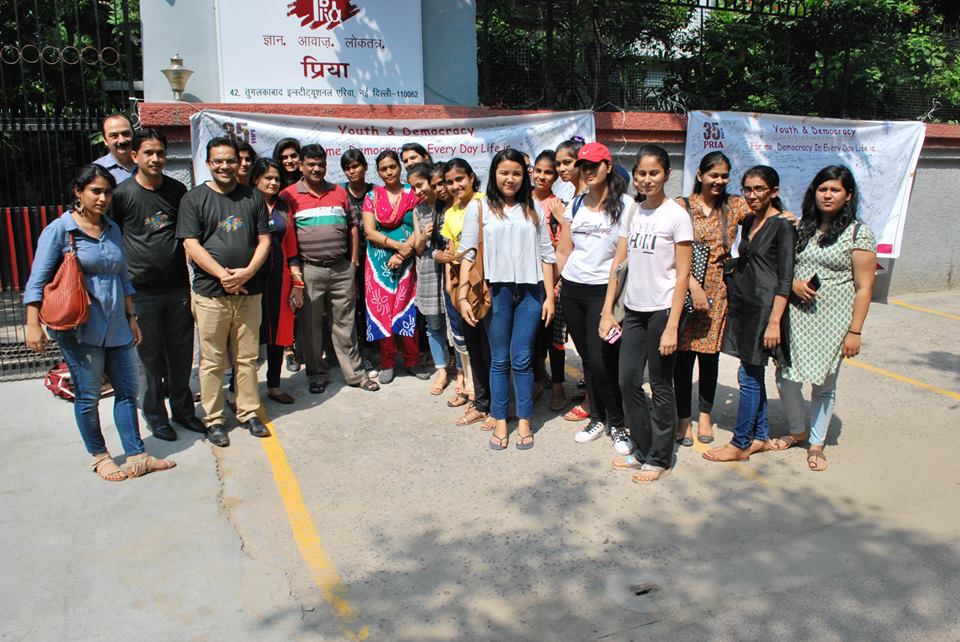How do the youth of India experience democracy in their daily lives? PRIA’s (Participtory Research in Asia) Youth-n-Democracy Campaign (YnD) is crowd-sourcing answers to this question from the youth across locations and income groups. College and university students in Delhi, Jaipur and Raipur, young Muslim girls in Varanasi, marginalised youth living in informal settlements in Ajmer, Jhansi and Muzaffarpur — they all live democracy everyday and have an opinion to voice. In a series of events and conversations around Democracy in Everyday Life (#DiEL), PRIA and its partners will mobilise the voices of 1 million youth across India as part of the YnD campaign till March 2018.

“India is the largest democracy in the world today, with half our population below 25 years of age. This is the largest group of youth in any country, any time in history. The future of democracy in India depends a great deal on the future generation — how they engage with the socio-economic challenges being faced by us and their support of democratic forms of governance and living democratically every day. PRIA believes in authentic, empowering participation of all sections of society in nurturing, protecting and deepening democracy, and has committed to facilitating engagement of 1 million youth aroundDemocracy in Everyday Life,” says Dr Rajesh Tandon, Founder-President, PRIA.
A signature campaign across 13 locations kick-started YnD on 15 September 2017, which marked International Democracy Day (#InternationalDemocracyDay).This year’s theme for International Democracy Day focused on the critical need to strengthen democratic institutions to promote peace and stability. PRIA worksto promote effective, inclusive and participatory democratic governance with respect for human rights and the rule of law among all sections of society.

Approximately 3100 youth from colleges and universities and local communities in Delhi, Panipat, Jaipur, Ajmer, Muzaffarpur, Lucknow, Varanasi, Jhansi, Bhopal, Raipur, Ranchi, Hazaribagh and Ramghar participated very enthusiastically in this signature campaign. Their comments give us interesting insights, varying across dividends like class, cities, and gender, on what Democracy in Everyday Life (#DiEL) means to them.
In general, remarks of the youth of bigger cities revolved around the demand and need for freedom of expression; the use of words like rights and responsibilities recurred frequently in their signatures. Others chose to talk about the democracy of the janta in which the values of equality and tolerance are practised every day. For youth from smaller towns, democracy lived everyday means better opportunities of education and the freedom to exercise their choice (be it personal or social). Interestingly, for all young girls across cities, living democratically means autonomy over their own lives and decisions. They expressed their resentment with the day-to-day discrimination and restrictions they face and wanted to get rid of it in their everyday lives.

A number of youth voiced the fearfulness they have in their hearts to speak up or act against things they resent and expressed a desire to get rid of these fears in their everyday lives. Others demanded the respect of privacy in their lives. Several signatures gave insights on the youth’s opinion of contemporary Indian politics and electoral democracy. Many youth emphasized bringing change in ‘oneself’ before demanding a change in the society in their definition of DIEL.





























